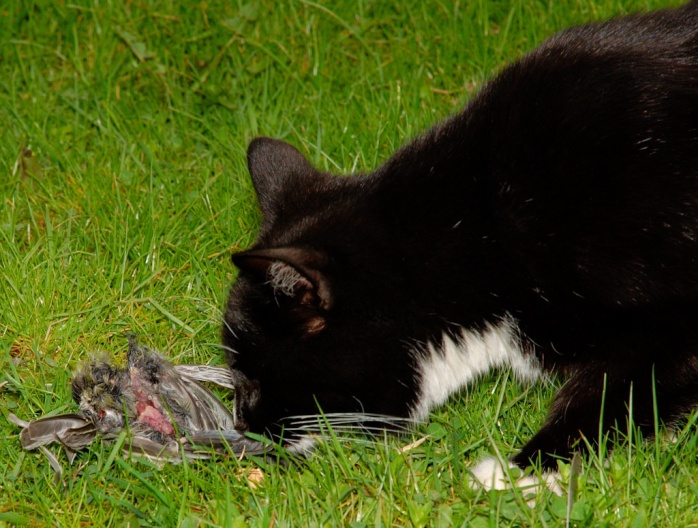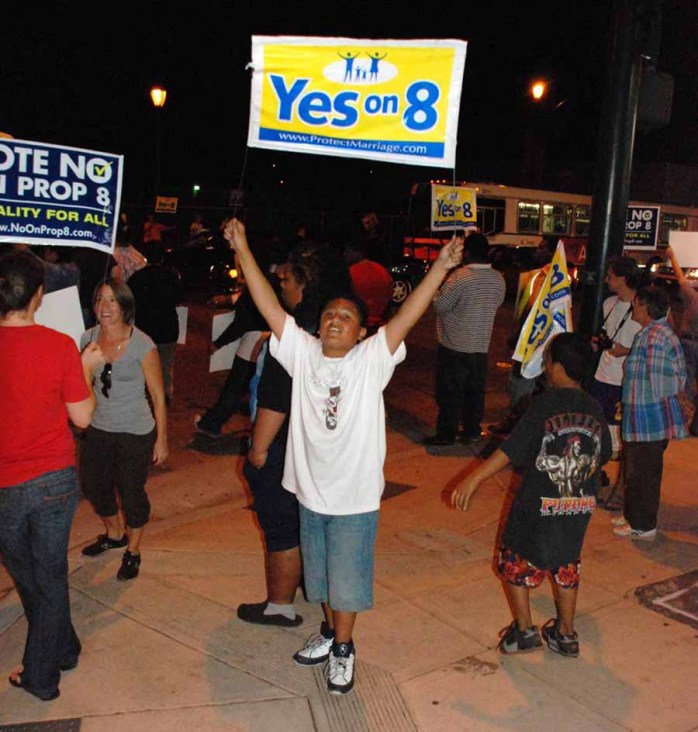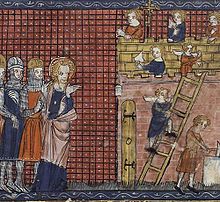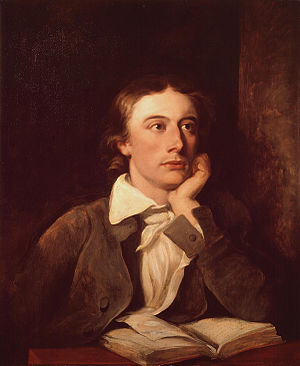Brad C. Hodson
A writer who still thinks the word "blog" sounds like something dirty.
Love, Beheadings, and a Tommy Gun: Let’s Celebrate St. Valentine’s Day
As I write this two birds sing to one another outside my window. It would be romantic to assume it was a love song. The reality is they’re warning each other about my cat eyeing them through the window as though Purina had gone out of business.
So much for romance, eh?

Or not. I’ve always found that, no matter how sweet and well-intentioned, all romance has an air of the predatory. What is wooing your loved one other than a unique combination of cunning, wit, and using your physical strengths to your advantage?
Cynical, perhaps. I try not to be. But it’s no coincidence that all the great loves that poets sing about and history passes down ended in tragedy. After all, the goal of the predator is the death of its prey.
And so what better way to celebrate St. Valentine’s Day than to explore the harsher reality of the holiday named in his honor?
Shakespeare alluded to the predatory nature of love throughout his work. He was a romantic and what he added to the lexicon of love would take volumes to repeat and explore. But we get little tastes of a bitter experience or two thrown in here and there, little reminders that love is a predator of sorts. From Viola’s quip in Twelfth Night, for example, a taste: “She loves me sure; the cunning of her passion / Invites me in this churlish messenger.” Cunning is a word that makes us think of tigers stalking prey rather than passion, yet here the Bard reminds us that such a trait is befitting the passionate.
Phrases like this are peppered throughout his works. Even Juliet, the poster-girl for love, uses brutal and bloody language to describe her feelings for Romeo:
“Come, civil night,
Thou sober-suited matron, all in black,
And learn me how to lose a winning match,
Played for a pair of stainless maidenhoods.
Hood my unmanned blood, bating in my cheeks,
With thy black mantle till strange love grow bold,
Think true love acted simple modesty.
Come, night; come, Romeo; come, thou day in night;
For thou wilt lie upon the wings of night
Whiter than new snow upon a raven’s back.
Come, gentle night; come, loving, black-browed night;
Give me my Romeo; and, when he shall die,
Take him and cut him out in little stars,
And he will make the face of heaven so fine
That all the world will be in love with night
And pay no worship to the garish sun.”
Competition, blood, cutting Romeo into little pieces… though the message is a romantic one (and a sexual one even more so), the language is more suited to Henry on the battlefield than to a fifteen year old girl waiting for her boyfriend to come take her virginity.
His sonnets, those mainstays of whispered seductions, are not immune to such language. Take Sonnet 40, for instance:
“Take all my loves, my love, yea, take them all;
What hast thou then more than thou hadst before?
No love, my love, that thou mayst true love call;
All mine was thine before thou hadst this more.
Then if for my love thou my love receivest,
I cannot blame thee for my love thou usest;
But yet be blamed, if thou thyself deceivest
By wilful taste of what thyself refusest.
I do forgive thy robbery, gentle thief,
Although thou steal thee all my poverty;
And yet, love knows, it is a greater grief
To bear love’s wrong than hate’s known injury.
Lascivious grace, in whom all ill well shows,
Kill me with spites; yet we must not be foes.”
Here love is a thief, a murderer, and an enemy. Yet Billy Boy is strangely okay with that. He accepts love’s nature, welcomes it even. He forgives all the wrongs done him by the one who loved him. A powerful lesson for St. Valentine’s Day.
The “Saint” often gets dropped from the holiday but, make no mistake, Valentinius is a Saint and, no matter one’s personal beliefs, celebrating the holiday is a Catholic thang.

So who was this cat Valentine and why was he made a Saint?
The year was 269 AD. Or 270. or maybe even 273, depending on who you cite. People didn’t care much about silly things like what year it was in the Third Century, after all.
In Rome (or maybe Terni, or maybe even Africa) Valentine had the audacity to perform marriage ceremonies for (gasp) Christians. In a time when the Emperors, particularly the uptight Claudius II, weren’t fans of all that Christian stuff, this was bad news.

So our man Valentine was arrested and brought to the Emperor. Claudius took a liking to the boy and would have let him live. That is until Valentine had a couple of glasses of wine and asked Claudius if he’d like to be forgiven of his sins. Claudius, known to be a reasonable man, had Valentine beaten with clubs and stones before having him beheaded outside the Flaminian Gate.

Interestingly enough, the Romans enjoyed love poetry almost as much as they loved public executions. This poetic tradition came into Rome from Greece, influencing poets like Ovid and Virgil. Their primary influence was a centuries dead Greek woman who redefined the interplay between the language of love and brutality.
Sappho is remembered today as not only a symbol of lesbianism but one of the sources for the term itself. Makes sense. She hailed from the island of Lesbos and wrote often of the love between women. If you made the leap that she’s the origin of the word “lesbian,” you wouldn’t be entirely wrong.
Only fragments of her work survive today but even these fragments are enough to catch the breath in your throat. The ancients spoke of her with the same reverence we speak of Shakespeare and it’s considered one of the biggest tragedies of archaeology that more of her work has never been discovered.
The fragment “Please” hints at the predatory.
“Come back to me, Gongyla, here tonight,
You, my rose, with your Lydian lyre.
There hovers forever around you delight:
A beauty desired.
Even your garment plunders my eyes.
I am enchanted: I who once
Complained to the Cyprus-born goddess,
Whom I now beseech
Never to let this lose me grace
But rather bring you back to me:
Amongst all mortal women the one
I most wish to see.”
Sappho was no stranger to the harsher effects of passion. Even with her “plundered eyes” she could still see what a wreck love could reduce someone to. In the “Ode to Anactoria,” she describes love in the same terms that Homer might have used to describe a Trojan cowering away from a raging Achilles:
“That man seems to me peer of gods, who sits in thy presence, and hears close to him thy sweet speech and lovely laughter; that indeed makes my heart flutter in my bosom. For when I see thee but a little, I have no utterance left, my tongue is broken down, and straightway a subtle fire has run under my skin, with my eyes I have no sight, my ears ring, sweat pours down, and a trembling seizes all my body; I am paler than grass, and seem in my madness little better than one dead.”
I’ve read similar descriptions of soon-to-be-victims in horror novels.
There’s another person who’s intimately tied to St. Valentine’s Day who would definitely embrace such horrific language.
Al Capone.
It was 1929 and Capone was sitting around, trying to think of the most romantic way to spend the day. After a morning spent brainstorming while walking through a rose garden and listening to birds sing (or getting a hummer from a prostitute – the sources are a little unclear), Capone hit upon an idea that would make it hard to ever divorce the work of Chicago bootleggers from the holiday of love.

In a love letter to North Side gang leader Bugs Moran, Capone’s men, disguised as police, lined up five members of the North Side gang and two of their close friends against a brick wall of a garage in Lincoln Park and used them to practice the efficiency of their Tommy guns.
Capone had hoped that Moran would be there himself to receive his heartfelt gift, but Moran left his hotel late and, when he was pulling up, saw the police car parked out front and so he went across the street and had a cup of coffee. While he waited, his men’s bodies were literally shredded by the gunfire.
The incident had the unplanned side effect of gaining the Federal government’s attention. From this moment on, their scrutiny on Capone and the Chicago mob was intense and eventually led to Elliot Ness’s affair with Capone’s tax records.
From Capone let’s travel back to Keats. Who can talk about love and not speak of John Keats? After all, the man once famously exclaimed “I could be martyred for my religion – Love is my religion – I could die for that…” To read his letters to his fiancée Fanny Brawne is to touch a heart that hasn’t beat in almost two hundred years. And his poetry! Well, I’ve always said that if someone can read Keats and not be moved, not feel his words vibrate their very skin, then that person has no soul.
I’m being deliberately pretentious with that, but there is some element of truth in it. We live in a cynical world. We’re inundated with a constant barrage of suicide bombings, corrupt government officials, and new diseases being touted as our very own Captain Tripps on the daily news. Yet in Keats we find what we should be striving toward. “I am certain of nothing but the holiness of the heart’s affections, and the truth of imagination.” What? Really? Could someone say something like this and actually mean it? How naïve was he?
Not very. For he also wrote: “Do you not see how necessary a world of pains and troubles is to school an intelligence and make it a soul?” Keats knew the dangers of love. He knew its predatory nature. But to him it was this very thing that created the passion inside of him.

And yet, in a letter to his brother George, he wrote: “Nothing strikes me so forcibly with a sense of the rediculous as love – A Man in love I do think cuts the sorryest figure in the world – Even when I know a poor fool to be really in pain about it, I could burst out laughing in his face – His pathetic visage becomes irrisistable.”
Wow. Bit of a prick, huh? Again, he knew the downside of love. He definitely knew its predatory nature. Another letter, this to his friend Benjamin Bailey, finds him saying: “When I am among Women I have evil thoughts, malice, spleen – I cannot speak or be silent – I am full of Suspicions and therefore listen to no thing – I am in a hurry to be gone – You must be charitable and put all this perversity to my being disappointed since Boyhood – ….I must absolutely get over this, – but how? The only way is to find the root of the evil, and so cure it.”
So was the Great Romantic Poet also a cynic? Perhaps. But in his quest “to find the root of the evil, and so cure it,” he also gives us this, his most famous verse, from “Ode on a Grecian Urn:”
“Beauty is truth, truth beauty,—that is all
Ye know on earth, all ye need to know.”
He’s talking about more than that urn or the lover’s forever about to kiss on its side; he’s talking about the wholeness, the transcendent feeling of understanding that love grants us.
Keats knew the dangers more than any of us. He broke off his engagement to Fanny Brawne when his tuberculosis became too much to bear. In the same letter where he announced his religion, he wrote to her:
“The time is passed when I had power to advise and warn you again[s]t the unpromising morning of my Life – My love has made me selfish. I cannot exist without you – I am forgetful of every thing but seeing you again – my Life seems to stop there – I see no further. You have absorb’d me. I have a sensation at the present moment as though I was dissolving – I should be exquisitely miserable without the hope of soon seeing you. I should be afraid to separate myself far from you. My sweet Fanny, will your heart never change? My love, will it? I have no limit now to my love…”
And here we see the cynical man give way to the romantic. He became the “sorryest figure in the world” and did so gladly.
In his last surviving letter to his love, written while he lay dying on a bed in what is now the Keats-Shelley House by the Spanish Steps in Rome, he spoke of this dichotomy, these two faces of love.
“I thought, I tried to think, my suffering
Was passion’s unfulfilment, the divorce
Of you and me by poverty, disease.
But now I know—I always knew, I think—
The cause was simpler and incurable.
That I have suffered from this love of ours
You know too well for me in kindness now
To half gainsay. But you could never know
How much your hand at rest on Brown’s firm shoulder
Above my invalid’s chair could torture me;
Or how, when your so longed-for letters came—
That never said enough—I had no strength
To open them, but covered them with kisses,
Like any scullery maid, and broke the seal
Each time with all the dreadful pang of heartbreak.
Ah, pain enough, dear girl, and pain to spare,
But through no fault of yours, for you are faultless!
At last I dare to recognize the cause
Of why I found love like a bloody sweat;
You could not love me but in your own way,
And that—that was a way that was not mine…
That’s past; forget with me its bitterness,
Remembering instead that out of this
Impossible, precipitous, starved love
Came all that I may claim of worth and beauty…
Do not remember me if memory hurts.
Good-bye, bright star, good-bye. God bless you, Fanny.”
John Keats died shortly after that at the age of 24. He and Fanny never saw each other again after he left for Italy. He thought he made no mark on the world and asked that his tombstone not show his name. Instead he wanted it to read “Here lies one whose name is writ in water.” But he was wrong. If love was his religion then he was its High Priest, and that’s where his immortality lies.
And there we have the ups and downs, the beauty and the brutality, of a holiday associated with an intangible concept that cannot be proven to exist by scientific methods but which is felt so strongly by most of us. So no matter what you do today, either in celebration of or in defiance of this holiday, raise a glass at some point to the martyrs of our holiday, felled by consumption, gunfire, execution, and, in many cases, that most brutal of four letter words.
Brad C. Hodson is a writer living in Los Angeles. His novel DARLING is now available. Also check out his Bibliography at https://brad-hodson.com/bibliography/